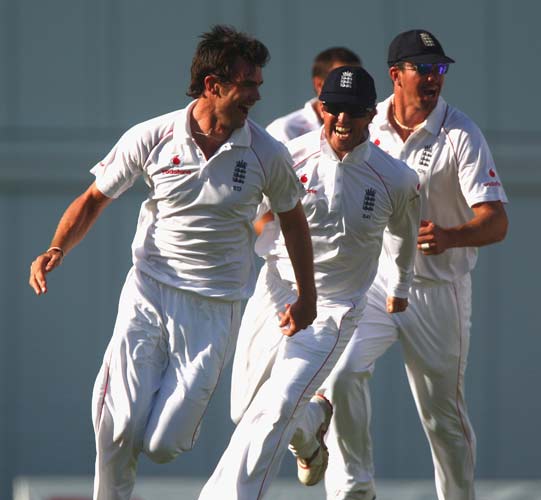Rash of referrals blight the game

No other sport could get itself into such an unholy mess. No other governing body but the International Cricket Council could mean so well with such a dire outcome.
The trial regulation officially known as the Umpiring Decision Review System has, once more, made Test cricket a figure of fun.
It is supposed to be the purest, most protected form of the game, trading on the eternal verities. The review system was introduced in the innocent desire to eradicate, with the help of technology, umpiring errors. Instead, as the series between England and the West Indies has confirmed, it is a blot on the landscape, like building a casino in a conservation area.
Doubts were sown during the first Test in Kingston but there was room for forgiveness because the players and officials were putting their toes in alien waters. The fourth Test in Barbados, however, has merely exacerbated the worst fears.
This was manifest on the third day by the case of Shivnarine Chanderpaul, the world's No 2 ranked batsman. He was given out lbw to Jimmy Anderson when he was 70 and involved in a match-saving partnership with Ramnaresh Sarwan. Since it was patently obvious to most naked eyes, except those belonging to the umpire, Russell Tiffin, that the ball would have gone over the top of the stumps, Chanderpaul asked for a review of the decision.
Under the regulations for the series, each side is allowed two unsuccessful referrals in each innings whether batting or bowling. It was confidently expected that Chanderpaul would be reprieved. Somewhat surprisingly, the third umpire Daryl Harper must have disagreed. In cases such as these it is his job to impart information to the on-field umpire which might persuade him to change his mind.
As the regulation puts it: "If an out decision is being reviewed the TV umpire should have a high degree of confidence that the ball would have made no contact with any part of the stumps or bails in order to report that the ball would have missed the stumps."
He is allowed to use slow-motion replays and tracking devices only until the point of impact. Still, as the Chanderpaul case demonstrated, one man's high degree of confidence is another being wracked with doubt.
In all, four of the first five West Indies wickets to fall came after reviews, which take an interminable time and, pertinently, are rarely conclusive. This is the third series and in terms of media coverage the one with the highest profile in which the trial has been conducted. Three referrals have been reduced to two.
The system was dropped for the hastily arranged match in Antigua as the technology could not be moved in time. It was all the better for it and the players were much more relaxed. But cricket continues to find ways of making itself look perfectly stupid. Time to review the reviews.
Subscribe to Independent Premium to bookmark this article
Want to bookmark your favourite articles and stories to read or reference later? Start your Independent Premium subscription today.

Join our commenting forum
Join thought-provoking conversations, follow other Independent readers and see their replies